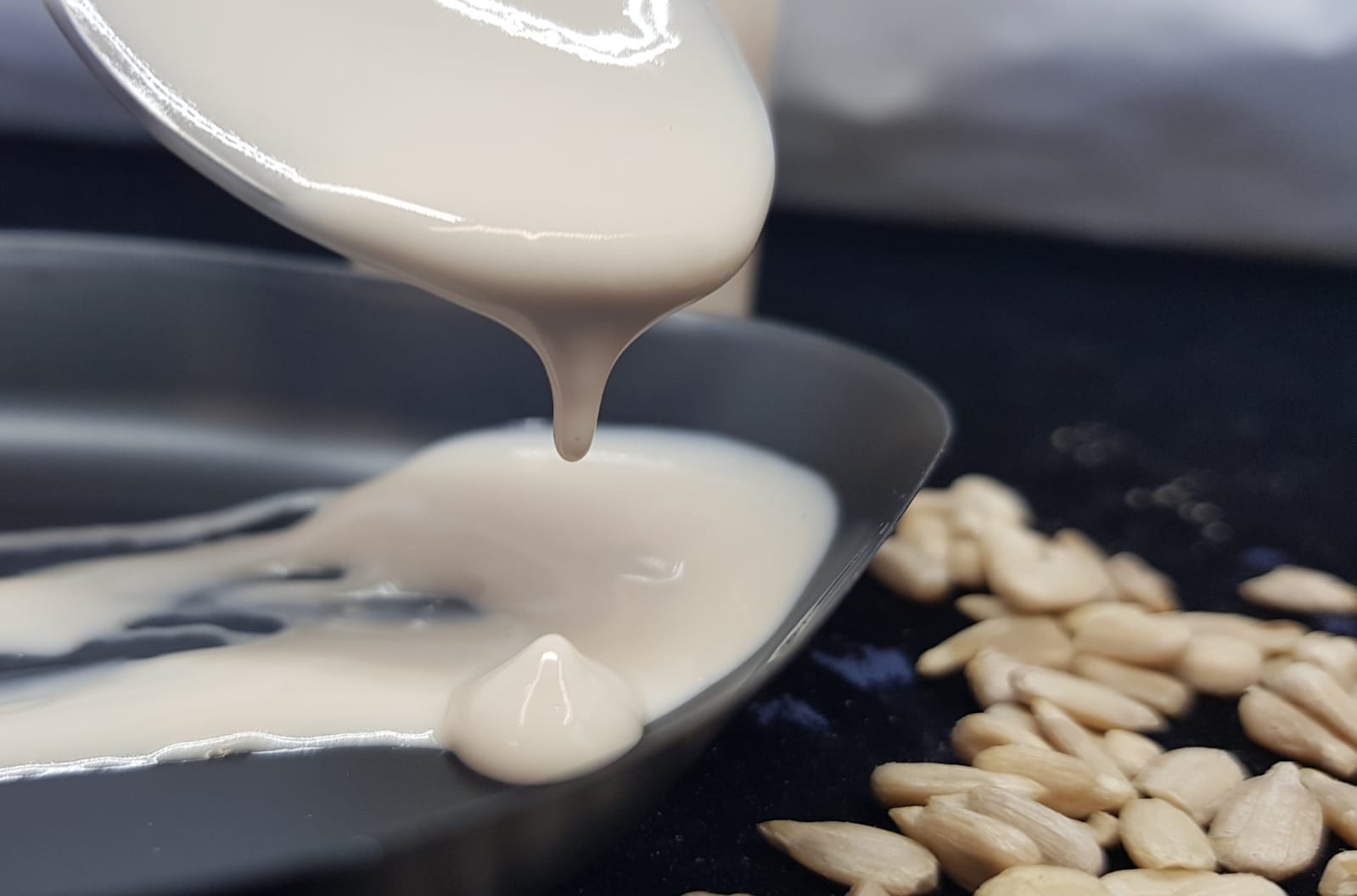The Wageningen researchers Dimitris Karefyllakis, Vittorio Saggiomo and Lammert Kooistra have received NWO grants to continue developing their startups. Karefyllakis, a PhD student in the Food Technology chair group until last year, co-founded Time-Travelling Milkman, a startup that extracts fats from plants as substitutes for dairy fat.
Dairy fat
Karefyllakis is receiving 40,000 euros from the NWO, and he will use the money to extract fats from sunflower seeds and process them into cream cheese, fresh cheese and quark. The goal is to make the product as creamy as regular cheese based on dairy fat. Karefyllakis works on this with his business partner in Time-Travelling Milkman Costas Nikiforidis, who works in the Biobased Chemistry and Technology chair group. ‘We use the university’s laboratories, so we keep in close touch with WUR.’
We use the university’s laboratories, so we keep in close touch with WUR
Dimitris Karefyllakis
Bioreactors
Vittorio Saggiomo, who works in the BioNanoTechnology chair group, is due to get 40,000 euros from the NOW too. He is going to use the grant to make special tailor-made bioreactors using a 3D printer. He is working on this with alumnus Carlos Serrano’s startup Remode Solutions. With the aid of 3D printer technology, they can print bioreactors using reusable materials quickly and cheaply. The company focuses on bioreactors with a capacity of five to ten litres for locations such as pharmaceutical and environmental technological research labs.
Drones
Thirdly, the startup Van Boven Drones has been awarded an NWO loan of 250,000 euros. This company uses drones to identify the best moment to harvest vegetables such as broccoli, cauliflower and lettuce. With this information, growers can deliver higher quality goods and plan their supply better. Their method is based on Eric Verhoeff’s Wageningen MSc thesis. Verhoeff developed an algorithm for identifying young maize plants with drones. He set up the company together with two Delft scientists. Lammert Kooistra, who works at Geo-information Science and Remote Sensing at WUR, is the startup’s technical advisor.
Insects
Three other Wageningen researchers received 50,000 euros apiece this month from another of NWO’s funds, so they could work out their idea for a business. Andrijana Horvat of the Food Quality and Design group wants to develop a simulation model that can predict the presence of harmful campylobacter bacteria in chickens. Dennis Oonincx of the Animal Nutrition group wants to reduce nitrogen and methane emissions from cows by mixing insects into livestock feed. And Francesca Orsi of the Landscape Architecture and Spatial Planning group wants to develop an app that finds links between our ecological footprint and where we live, to be able to advise us on how to reduce that footprint. All the researchers want to use the NWO funding to assess whether it is possible to convert their idea into a commercial product.
Fish
Meanwhile, even more Wageningen researchers are looking for ways of marketing their knowledge. Just before the summer vacation, a group of fresh entrepreneurs finished Startlife’s Accelerate Course. Beside Time-Travelling Milkman, these included several other startups with Wageningen roots. One of them was Van Holland Zalm, a company developed by Rob Dortmans during the MSc programme in Aquaculture and Marine Resource Management. The company farms salmon in tanks on land, using circular principles so that the fish farming produces minimal CO2 and requires no antibiotics.
Cotton
The company NXT Cotton Solutions, set up by two Rotterdam businesspeople, uses a WUR patent to recycle cotton so that less land, water and pesticides are needed to produce our cotton clothing. In the startup InsectoCycle, the Wageningen entomologist Seppe Salari and two Delft alumni are setting themselves up as a supplier of insects and apparatus for breeding insects. And Wageningen alumnus Rikje van de Weerd started the company Natural Pond together with Rik ter Horst, to provide a natural way of combatting algae in surface water.

 Time-Travelling Milkman makes creamy fats out of sunflower seeds, photo Saskia Tersteeg
Time-Travelling Milkman makes creamy fats out of sunflower seeds, photo Saskia Tersteeg